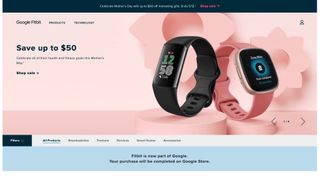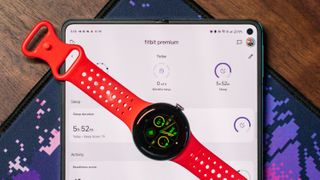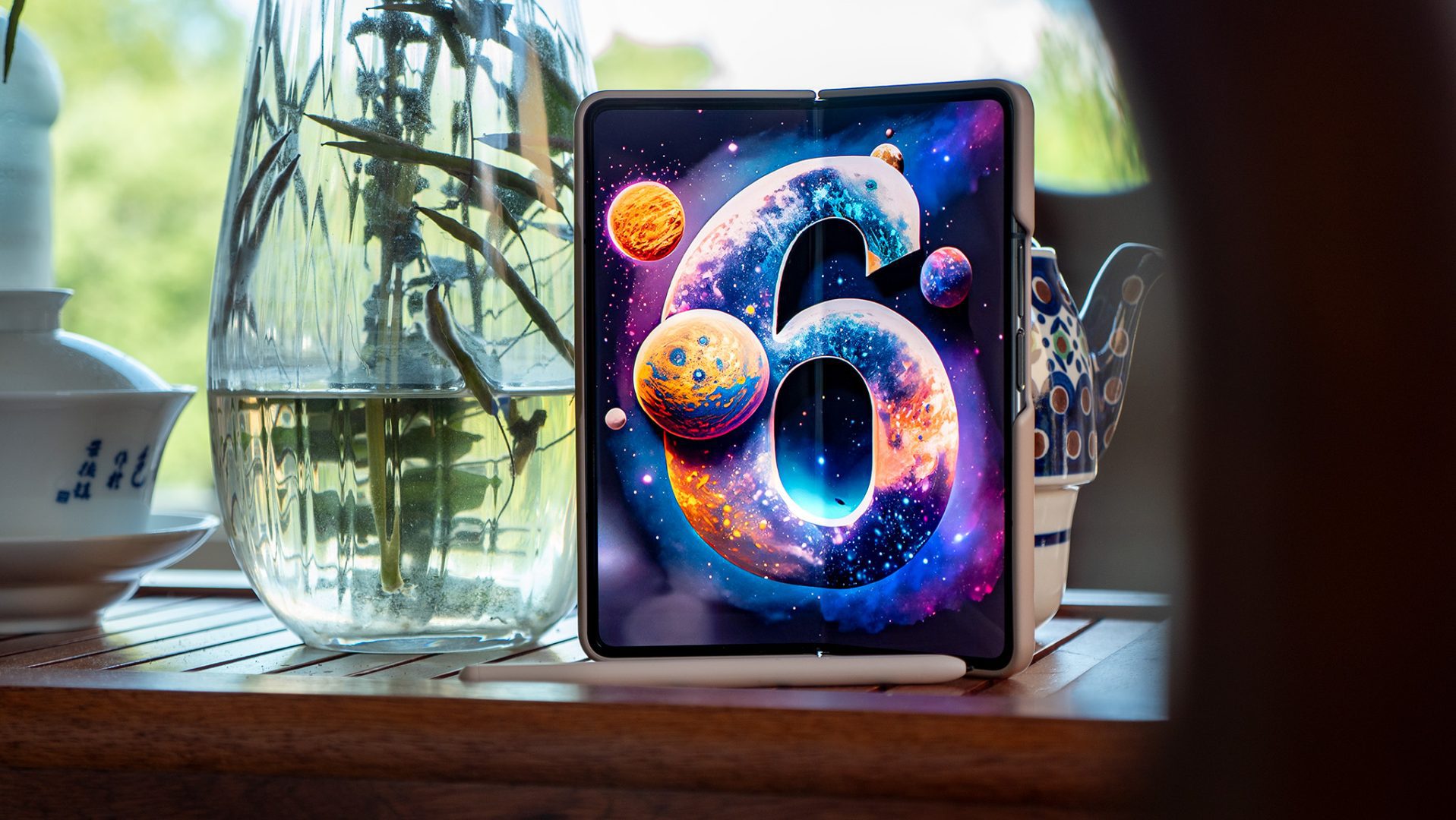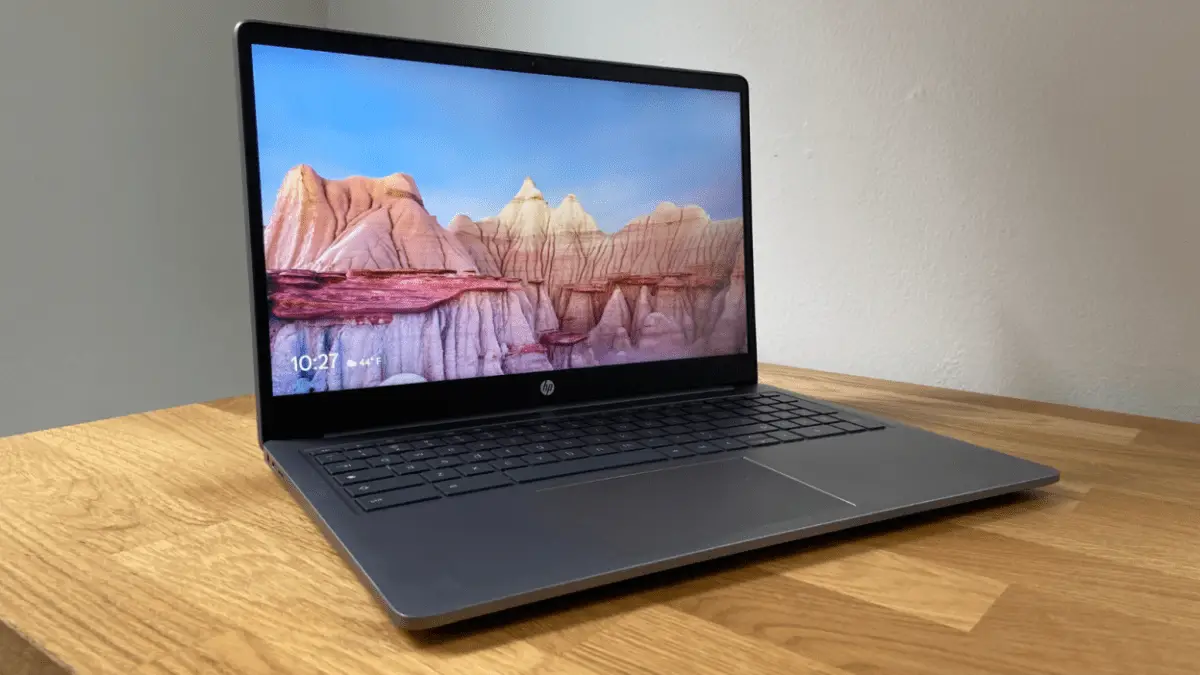Google begins removing Fitbit’s online store as integration deepens
What do you want to know Although Google completed its acquisition of Fitbit in 2021, the wearables brand remained largely independent until very recently. Last week, the company shut down the standalone Fitbit.com store, now directing customers to complete their purchases on the Google Store. It’s one of the final nails in the coffin for […]

What do you want to know
- Although Google completed its acquisition of Fitbit in 2021, the wearables brand remained largely independent until very recently.
- Last week, the company shut down the standalone Fitbit.com store, now directing customers to complete their purchases on the Google Store.
- It’s one of the final nails in the coffin for Fitbit, which is now taking a back seat to Google after once being a dominant company in wearables.
Since completing its acquisition of Fitbit a few years ago, Google has gradually integrated the brand’s products, services and underlying technologies into its portfolio. The Google Pixel Watch and Pixel Watch 2 clearly take design and technology inspiration from Fitbit, with curved edges and a minimalist form factor, for example. Fitbit also borrowed elements from Google, like its Material You design language. However, until very recently, Fitbit maintained a fairly high level of independence from Google.
This run appears to be officially over, after some major changes this month. In early April, Google redesigned the Fitbit app to make it more Material You compliant, particularly in the Sleep pages. The overwhelming majority of Fitbit users did not like this decision, as evidenced by many social media posts and even some emails I received directly from users.
Now, Google has decided to close the Fitbit.com store, with 9to5Google first spotting the change over the weekend. If you try to purchase a Fitbit device on the native Fitbit website, you will be redirected to the Google Store to complete your purchase. “Fitbit is now part of Google, so your payment and purchase will be made on the Google Store,” a banner explains.
The move isn’t really surprising as Google has been integrating Fitbit more into the company throughout 2024. First, it combined the Fitbit and Google help centers in January. Then, in March, Google added more wearables and wristbands to the Google Store. At that point, the writing was on the wall. Fitbit’s time as a standalone brand was coming to an end.
While it’s easy to criticize Google for making changes to Fitbit, it’s also easy to see that the brand, or at least its hardware, is taking a back seat to Google’s wearable strategy. People just aren’t buying Fitbits – and smart bracelets in general – like they used to. It makes sense that Fitbit’s future lives on through Google products, and we can look to another major tech acquisition to predict what that future might look like.
People are increasingly turning to smartwatches rather than smart bracelets

Market habits change, and that’s part of why Fitbit wouldn’t survive if it tried to maintain the status quo. In the early days of wearables, people were all about tiny, sporty smart bracelets. Now, consumers prefer smart watches because they provide more information and utility to their wrists. Even minimalist shoppers now have smart rings as a more attractive alternative to traditional smart bracelets. I’ve also seen this in my own purchasing habits. My first wearable was a Fitbit Charge HR, and now I’m wearing a massive Apple Watch Ultra on my wrist in 2024.
The figures also confirm these anecdotes. In the fourth quarter of 2022, a Canalys The report reveals that the smart bracelet market saw its first double-digit decline during a fourth quarter. The drop was 18%, which is very rare for a 4th quarter which usually sees good sales figures due to the end-of-year holidays. As Market Rebounds Slightly in 2023, Says New Study report, smart bracelets continue to lose ground to smart watches. In the second quarter of 2023, the market share of basic wristbands was lower than that of basic watches and smartwatches.
Additionally, a IDC A March 24 analysis lists smart bracelets as the only wearable category whose sales are expected to decline year over year. Smartwatches, headphones, glasses, and rings all have positive outlooks.
Fitbit has made smartwatches, but they aren’t very good compared to the best smartwatches, such as those from Samsung, Garmin, and Apple. While Google now makes its own smartwatches using Fitbit technology, Fitbit’s main products are smart bracelets, which consumers seem to be turning away from. Google’s recent moves suggest that Fitbit appears to be less of a priority than some of its other hardware offerings, and that makes sense when you consider the state of the wearable wristband market.
We’ve seen this kind of major acquisition before

So what does the future of Fitbit look like? While the brand is unlikely to be Google’s highest priority hardware division – which will fall under the Pixel family of devices – it’s not necessarily considering a complete shutdown either. To get an idea of what Fitbit’s future at Google holds, we can look at how Apple handled its acquisition of Beats about a decade ago.
Apple acquired Beats, in part, for its software. The streaming service Beats Music is the origin of Apple Music. There’s a parallel here with what’s happening with Google and Fitbit since Fitbit’s software is still alive and well and is used to power fitness and health features on Pixel watches. Eventually, Apple shut down the Beats online store, redirecting buyers to Apple’s online store. The company introduced AirPods and its own line of headphones and earphones, apparently replacing Beats.
And yet Beats still exists eight years after Apple released the first generation AirPods. Sure, the brand isn’t as dominant and ubiquitous as it once was, but new Beats headphones and earphones are still being released today. I expect Google to follow a similar strategy to Fitbit. We’ll never see Fitbit be the premier wearable brand again, but we will see Fitbit’s tech-powerhouse Pixel products as well as more subtle Fitbit wearable versions.
In other words, Fitbit is now completely integrated with Google, which has brought and will continue to bring major changes. This is partly because consumers aren’t as fascinated with Fitbit’s offerings as they once were and partly because Google has its own priorities. But Fitbit isn’t going anywhere and will likely remain a small part of Google for a long time.














